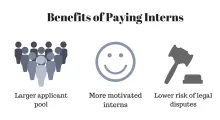(Editor's Note: This is the first in a monthly series highlighting the intersection of business and research. UCCS professors from its College of Business are available to answer pressing questions about business - from creating more productive employees to workforce development and retention. Have a business question? Put the UCCS professors to work. Send your question to editorial@csbj.com. We'll present questions with their answers the fourth Friday of every month.)

Many organizations are facing devastating cyber threats and have immediate need for skilled cybersecurity professionals. However, it is increasingly difficult to find trained practitioners as everyone is fighting for the same talent. Even if talent is available, the turnover is pretty high given the nationwide shortage of cybersecurity workforce. This challenge is even more severe for small- and medium-sized enterprises. As a business leader, how can you address this critical issue of cybersecurity talent recruitment and retention?

Several hours of meetings with no solutions in sight. The competition is eating your company’s lunch… and dinner… and part of your breakfast. Then, during a break, you overhear one of the silent participants suggesting the solution to one of her peers. You wonder — why didn’t she speak up during the meeting?

The root of innovation lies within the organization’s people to a much greater extent than is usually appreciated.

The current economic conditions of low unemployment and high job growth have created a perfect storm for employers. Organizations that used to struggle to find good talent now are faced with the challenge of retaining their top employees. Many of today’s highly educated professionals have their choice of open positions. Unhappy, unfulfilled or simply bored employees can easily leave for a new position elsewhere.

The root of innovation lies within the organization’s people to a much greater extent than is usually appreciated.

Creating social value and protecting our natural resources have been touted as important components of a firm’s strategy.

Job autonomy, has been of increasing interest to companies and to scholars conducting research on how to design jobs for optimal performance.

Sharing good or noncontroversial financial information is easy, but for many managers sharing complex or negative financial information can be challenging.

While it’s true that internships are beneficial and provide meaningful work experience, there are several negative side-effects to unpaid internships.

A board of directors can be a valuable asset for a company. But it requires time and resources to create a useful board.